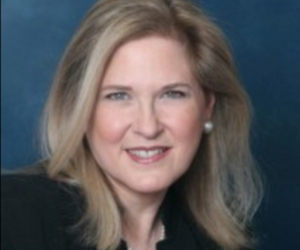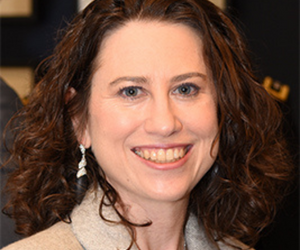Salisbury Substance Abuse Community Center
The man who built the sliding partition
If you ever visit the Salisbury Substance Abuse Community Center (SSACC), notice the sliding partition that, when pulled shut, cuts the main hall in half. The carpentry is nicely done. It provides a real service by making the room twice as functional. It also saved a man’s life.
As Pat Boccia, one of the moving forces behind the Center tells it, the man who built the sliding partition was, no surprise, a carpenter. But he was also a recovering alcoholic struggling to stay sober.
As the man fought his addiction, he found that his life was coming apart at the seams. His wife told him she was leaving him, his business was falling apart, and because of his disastrous financial condition, he was on the point of losing everything, including possibly his life.
The parts of his life that he held most dear were being taken away from him. At this point, who wouldn’t have been tempted to take just one little solacing drink?
Just one. To ease the pain a little. Just to forget for a moment. To have a little inner peace.
The carpenter was tempted, but he was aware of something critically important because of his participation in a 12-Step Recovery Program at the Center. For a recovering alcoholic, one drink can rapidly turn into twenty drinks. One drink is too many and a thousand aren’t enough.
For a recovering alcoholic, that first drink is a giant step forward on the road to death. And it isn’t the 20th drink that kills you; it’s the first drink, because it’s that first drink that inevitably leads to countless more.
You don’t have to do it alone
Fortunately, that man didn’t have to face his temptation alone. With the support of his friends at the SSACC, he relied on the 12-Step Program, and he found was able to focus on an alternative to drinking.
That alternative was using his skills as a carpenter to build the partition. He worked on it with a mania, hardly pausing to take a breath, doing everything he could to focus on the job rather than on the despair he felt in his personal life.
At the end of the week two wonderful things happened. The job was finished and the unbearable temptation to drink was behind him.
Today, he credits the wall with saving his life. “It provided me with an alternative to drinking,” he tells everyone. It gave him back his life.
To Pat Boccia, the most important part of this story is that with the SSACC, “You don’t have to do it alone.”
Knowing the importance of support and fellowship, Boccia, along with some of his friends and mentors, decided back in 1987 that our area needed a place for people in recovery to get together. Boccia’s colleagues in this work included the late Carl Porter, J. Arthur DeHoff, Jr., Bill Birddell and several other concerned citizens in our area.
SSACC Today
Renting a building and furnishing it was not an easy task, but the founders refused to be discouraged. Today their efforts have paid off, probably more than they dreamed. Initially, they said that if the Center could save one life, it all would be worth it.
Today, more than 800 people attend the various meetings each week and there are 35,000 visits in the course of a year. Those numbers include duplications because some people may come in as often as twice a day in their efforts to overcome alcohol or drug addictions.
The programs help not only people with substance abuse problems, but there are also support programs for their families or significant others. There are also programs specifically for teens and tots.
All day long, whether there’s a program or not, people are welcome to come in for a cup of coffee, maybe a game of cards, and the support of a caring community. To give an idea of the scope of this socializing, the Center’s second biggest expense in its $50,000 a year budget is the $600 monthly coffee bill.
Initially the founders felt that if they could save one life, it would be worth it. Today, no one can know how many lives the Center saved. The odds are that there are hundreds, if not thousands, who’ve been able to put their lives back together, thanks to the SSACC.
The Salisbury Substance Abuse Community Center is located at 501 Cross Street, just off Highway 13. For more information, call 410 749 9482.
Lewis Carman, the SSACC Director’s Wish List: Volunteers to answer the telephone and greet people Copier Calculator FAX Machine 6 lockers, 24 inches by 36 inches or larger, to hold supplies for the various meetings.
Search Blogs
Latest Posts
Architect of Her Life
https://medium.com/@ken.roman_84029/architect-of-her-life-78e38401de71 Publication –medium.com
Meet Clara Kaluderovic
https://canvasrebel.com/meet-clara-kaluderovic Publication – canvasrebel.com
New Jersey drone sightings expose America’s battlefield blind spot
https://www.washingtontimes.com/news/2024/dec/23/new-jersey-drone-sightings-expose-america-battlefi Publication –washingtontimes.com
She Brews Hope and Resilience Even During War
https://foreignpress.org/journalism-resources/she-brews-hope-and-resilience-even-during-war Publication –foreignpress.org
Subscribe to Updates
About Author

Mitzi Perdue is the widow of the poultry magnate, Frank Perdue. She’s the author of How To Make Your Family Business Last and 52 Tips to Combat Human Trafficking. Contact her at www.MitziPerdue.com
All Articles
The Ultimate Soft Skill for Management: EMPATHY
The Ultimate Soft Skill for Management: EMPATHY Want a surprising statistic? (For a hint, it has to do with soft skills.) Eighty-five percent of management success depends on people skills. Cynthia W. Lett, the woman who gives this statistic, has been advising...
Family Businesses Can Learn from Military History
Family Businesses Can Learn from Military HistoryMilitary Culture My late husband was fascinated by military culture, and you could often find him reading the biographies of famous generals. His fascination stemmed from his interest in human motivation. He often...
Family Quarrels & Mediation–Pull Back from the Brink
Family Quarrels & Mediation– Pull Back from the BrinkI hope you’re not reading this because you’re up against a family quarrel. The pain of a family quarrel can permeate every hour of every day. The fallout has the potential of threatening everything we all hold...
What Family Businesses Can Learn From Military Culture
What Family Businesses Can Learn From Military CultureFor longevity and having an extraordinarily strong culture, few organizations can match our military. The military culture of our armed services began before the founding of our country, and it survives to this...
Four Sure-Fire Ways to Stand out in Your Career
Four Sure-Fire Ways to Stand Out in Your CareerA young man in a class I was addressing at a Columbia University business class asked me a poignant question. “How do I stand out in my career?” He was in his mid-twenties, professionally dressed, and his body language...
Family Stories Keep Families Together
Family Stories Keep Families TogetherJackie Kennedy Onassis once said: “If your children turn out well, nothing else matters. If your children turn out badly, nothing else matters.” Having the young people in your life turn out well is as important as anything else...






